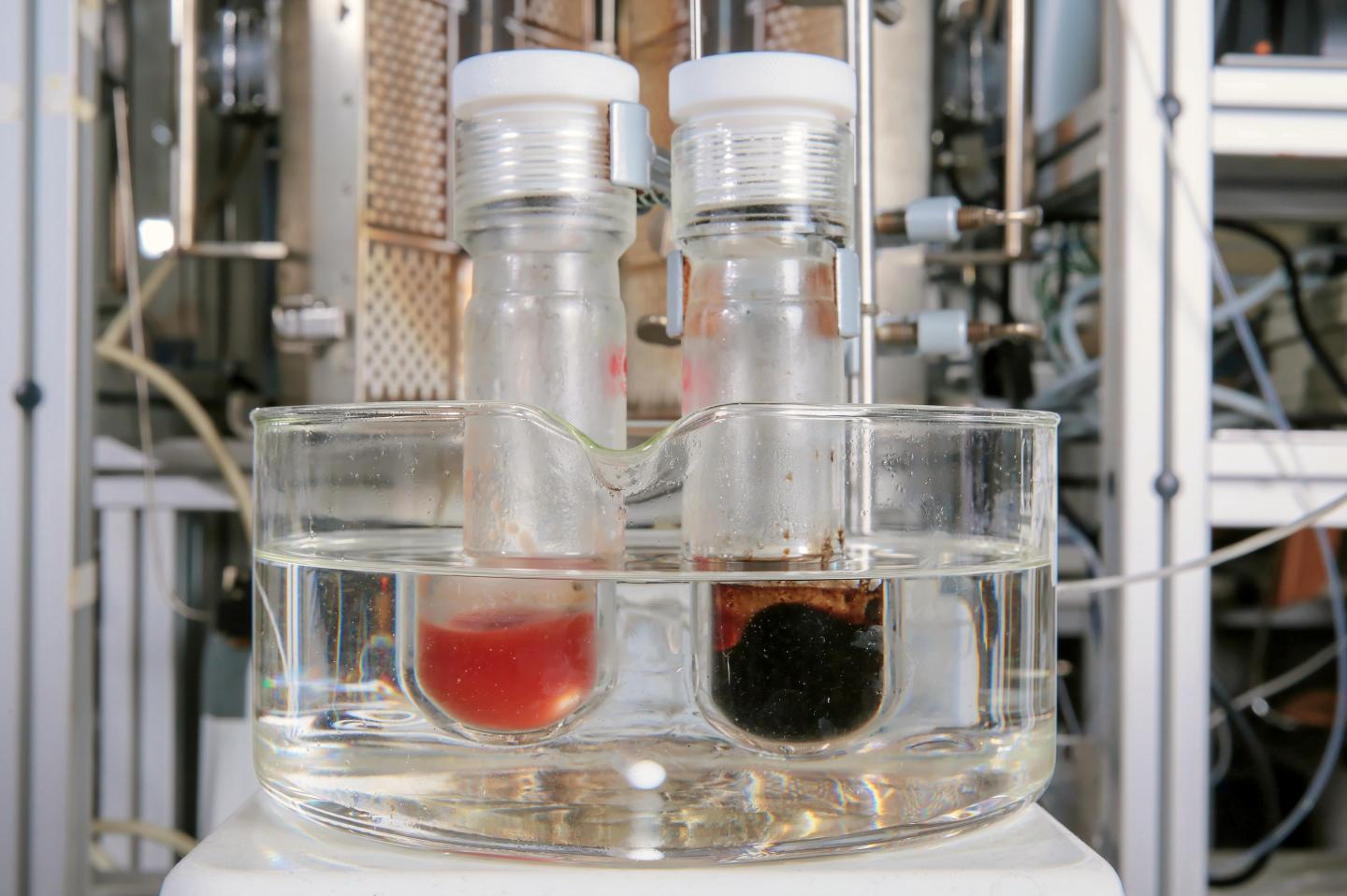EPFL chemists have discovered that adding formaldehyde to lignin could turn waste, such as he molecules found in wood, into wealth. Biomass may hold a key to meeting future energy needs – it’s sugars can be turned into biofuels and other bioproducts. But until now a barrier to efficient production has been the plant’s lignin. Scientists have now turned the lignin into a source of biofuel by adding the common chemical formaldehyde. When this is done, up to 80 percent of the lignin is converted into molecules that can then be turned into biofuel and plastics. The patent-pending method, which can be scaled up to industrial levels, is published in Science.

This image shows lignin extraction with (left) and without formaldehyde (right). Photo credit: Alain Herzog/EPFL
According to EPFL chemists, lignin makes up nearly one third of plant biomass and its molecular structure gives it an energy density 30 percent greater than that of the sugars that are traditionally processed into biofuel. Where lignin becomes a challenge is when trying to extract and transform. Thus, say the researchers, lignin usually rapidly gets destroyed during its extraction and most researchers have failed to efficiently break it apart for upgrade into fuels or chemicals.
Now, an international team of researchers led by Jeremy Luterbacher at EPFL have found that formaldehyde stabilizes lignin and prevents it from degrading, leading to high yields of building blocks that can be used to make substitutes for petrochemicals. These yields were 3-7 times higher than those obtained from lignin without formaldehyde.
“Depending on the wood used we get between 50 and 80%,” said Jeremy Luterbacher, who became known in 2014 for developing a method for extracting sugars from plants safely and cheaply (also published in Science). “The chemistry is relatively straightforward; the real challenge is actually finding investors for a pilot facility to demonstrate this.” The market, he said, is difficult for sustainable energy largely because of inconsistent political support and widely varying energy prices. Investors for such innovative platforms are hard to come by in an uncertain market, especially considering the competition of well-established fossil fuels.
“The technology looks really good,” Luterbacher continued. “If the global political establishment sent a consistent message about moving away from fossil fuels, then investors would take notice. But I think Switzerland is a great place to get started. The Swiss have been unwavering supporters of clean energy and could help demonstrate new technologies, and so I’m quite optimistic about the future.“

